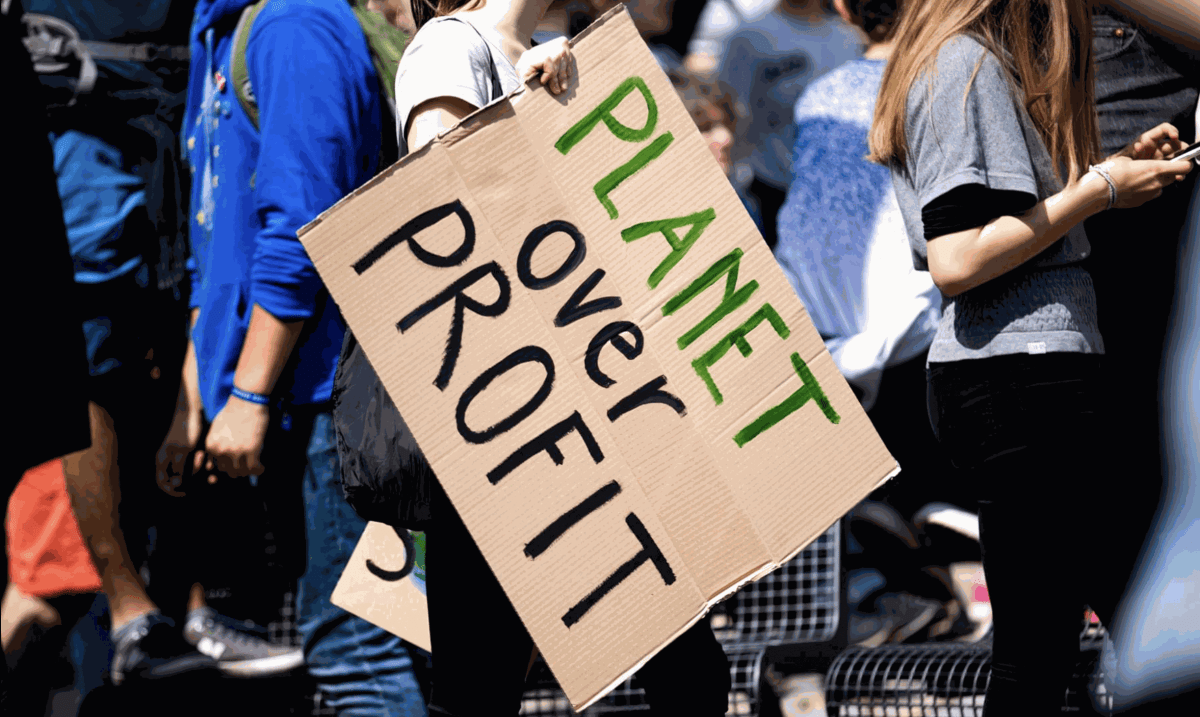What is Greenwashing?
Greenwashing is a term used to describe a company or organisation that invests in the optics of appearing sustainable while continuing to operate with environmentally damaging practices. This is usually achieved through marketing and branding.
There is a huge spectrum of greenwashing practices. At best, companies may not have enough understanding of environmental issues to realise they are making misleading claims. At worst, some organisations purposefully paint a deceitful picture in order to benefit from increased consumer demand for environmentally conscious products and services.
As an example, ClientEarth recently launched a legal action against TotalEnergies (a multinational energy company), arguing that the fossil fuel giant is using misleading advertising to convince consumers it can become carbon neutral by 2050, despite continuing to amp up their production and sales of fossil fuels.
Greenwashing in the Art Sector
Greenwashing is prevalent in many sectors, including the visual arts, and most often occurs when a supplier is trying to get your attention.
Be wary of service providers such as travel agencies or shipping companies who claim ‘carbon neutrality’ through offsetting. To learn more about why GCC chooses to promote Strategic Climate Funds over offsetting, see our report here.
Packaging materials can be an area of contention too, when it comes to greenwashing. Often, items are sold as ‘biodegradable’ or ‘compostable,’ despite the fact that the facilities required in order to process these materials effectively are few and far between.
As per GCC’s Packaging guidelines: follow the waste hierarchy, and always prioritise refusing, reducing and reusing materials (rather than relying on recycling services) to ensure your choices have minimal impact. For advice on London-based waste management companies, see our London Waste guidelines.
As the climate crisis worsens, organisations are facing increased pressure, from their clients, stakeholders, and employees, to take action. Therefore, it’s more important than ever to be aware of the risks greenwashing may pose to your organisation's reputation.
Whilst clever marketing tricks make it difficult to spot misleading claims, here are some telltale signs of greenwashing and, importantly, tips on how to avoid doing it yourself:
How to spot greenwashing:
- Claims of “sustainability” without evidence of action.
- Use of unclear or ill-defined terms or certifications. (E.g a “planet-friendly packaging alternative” with no detail on how and where the product is made, what materials and processes are required to produce it, and how it can be effectively disposed of at the end of its life).
- Small measures dressed up to sound more important or significant than they really are. For example, a caterer trumpeting the fact they no longer supply plastic straws while giving no information on the sustainability of their actual food (which has a far, far bigger environmental impact).
- Use of “green” visuals. For example, many fossil fuel companies use green and plant-like imagery in their logos, and employ visuals of wind turbines and renewable sources of energy in their advertising campaigns, despite ramping up their polluting and extractive practices.
- False labels or certifications. If a product or supplier website features an official-looking logo or badge saying something like “forest friendly” or “low carbon product”, don’t assume it’s a meaningful certification. A web search should tell you whether it’s a genuine stamp of quality from a reputable organisation, or just a bit of canny marketing.
How to avoid greenwashing in your own organisation:
- Reduce the need to purchase new materials and products as much as possible by reusing and sharing items that are already in circulation.
- Ask questions. If a product claims to be sustainable without offering evidence, speak to the producer. If they are unable to answer your questions, it’s a red flag.
- Review your most commonly used suppliers and service providers, and ask them for evidence of any sustainability claims.
- If you’re in the UK, Ethical Consumer is a great resource for checking the sustainability credentials of a whole range of goods and services. Outside the UK, organisations on this list might also be able to help.
- Prioritise organisations with B-Corp certifications.
- When speaking about your own steps toward sustainability, clarity, honesty, and transparency will ensure that you steer clear of greenwashing.
- If you would like to publish a statement on the sustainability work you are doing, GCC has an Environmental Responsibility Statement template here to help members keep claims tied to actual and effective actions.

